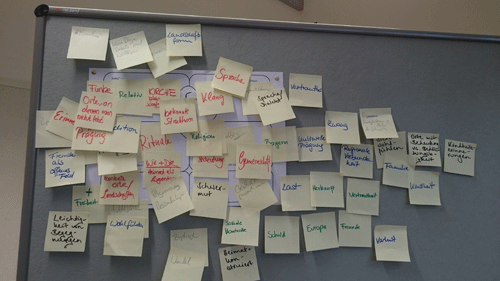Research Project

Real Lab Asylum-Seekers in the Rhine-Neckar Region
The Real Lab Asylum-seekers in the Rhine-Neckar region consists of four sub-projects, one of which is being conducted at the Institute of Geography at Heidelberg University (subproject III). The aim of the project is to derive insights in the areas of language acquisition, integration in the job market, and living and accommodation of asylum-seekers and refugees in Heidelberg, Sinsheim and Wiesloch.
Subproject III – Decentralized Living and Housing of Refugees and Asylum-Seekers
Urban Geographic, Sociodemographic and Migration Sociological Dimensions of Decentralized Living and Housing
The decentralized accommodation of refugees and asylum-seekers is moving to the center of attention in communes and urban neighborhoods, the realization of which relies on the wide support of the urban society. However, experiences with the criteria of success, difficulties and practical consequences for the urban society are limited.
Subproject III is exploring the effects of the implementation of decentralized forms of accommodation within the neighborhoods and in the city. For this purpose it studies negotiation processes between relevant social actors and focuses also on effects of decentralized forms of accommodation on the living and housing situation of asylum-seekers and refugees. Results will be discussed at a local level and transferred in a supra-regional debate.
The consistent exchange between research and practice supports scientific analyses to further develop a welcoming culture in Heidelberg. This is achieved through the investigation of the changes in governance and communication structures between different social actors and groups in the city, such as volunteers, refugees, locals, municipal officials, representatives of welfare- and social organizations. In addition, the corresponding municipal regulations and the resulting discourse arising in the city will be considered.
A culture of exchange
will govern our actions to collaboratively bring together the individual potentials of refugees, asylum-seekers and locals in the urban neighborhoods. A constant exchange between researchers and practice partners as well as the joint development of real experiments serve as a catalyst to develop sustainable urban structures. As a pilot study, it also aims to provide application-oriented knowledge for other municipalities.
The dissertation produced in the framework of the research project (by Svenja Kück M.A., project worker) examines the conditions and forms of doing heimat by refugees in the city. Refugees and asylum-seekers are equipped with different sets of rights and confronted with varying ascriptions. Thereby they face different hurdles and realities, which also have a major influence on processes of doing heimat.


